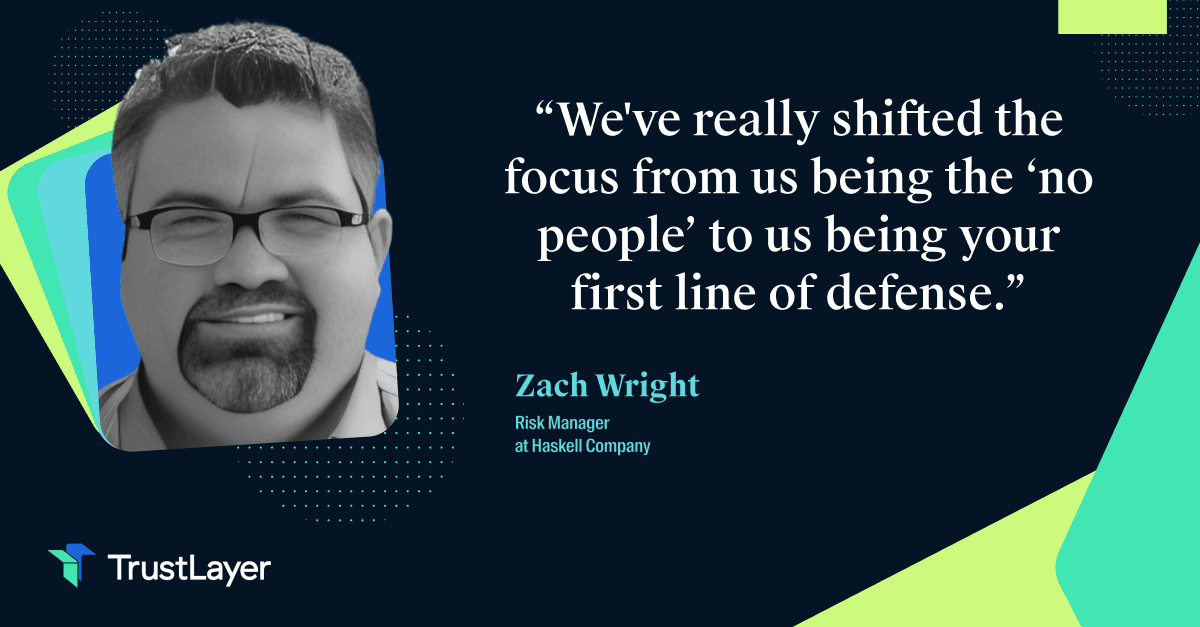Construction teams deal with risk on a daily basis. Working with heavy machinery, heights, and specialized tools means construction leaders pay high insurance premiums. However, these high premiums can be reduced if construction teams employ systems that make working safer. Before construction business leaders can explore deploying technology to make construction sites safer and reduce risk, they must first understand risk management and why the premiums they pay tend to be higher than those of their counterparts in other industries.
The reality of construction safety
One of the biggest contributing factors to high insurance premiums in the construction sector is the perception that the industry is inherently unsafe. While much is being done to address safety concerns, this belief is not unfounded. While worker deaths and injuries have been trending down for the past few decades, safety mishaps in construction still account for approximately one-fifth of workplace casualties in the U.S. There is no doubt that construction is a high-risk industry and that business leaders can take steps to reduce the daily risks their workers face.
How construction companies can effectively insure themselves throughout a project
Insurance within the construction industry is often referred to as “construction insurance” but this is not actually a type of insurance at all. “Construction insurance” is used as a catch-all term for all the types of insurance that construction companies must have throughout the course of a project. While some types of insurance are mandated by law, individual stakeholders within a project often add protections that are more in line with their needs.
Contractors, project owners, and subcontractors all have unique requirements that can only be served by a specialized insurance policy. Choosing an insurance provider can be a challenge for many business leaders. Even before this process begins, business leaders must ensure that their operations are designed to reduce risk and improve safety to keep premium costs under control.
5 ways businesses can use technology to drive premiums down and improve on-site safety
1. Deploy specialized technology to reduce workload for on-site workers
Injuries are considered common at construction sites all over the country. However, these injuries most often affect younger workers. Recent research found that construction workers between the ages of 25 and 34 are most likely to sustain an injury while on the job. This is because young workers are assigned the most physically taxing tasks.
Business leaders can provide support to these workers in the form of specialized technology such as exoskeletons and drones to reduce the physical impact of handling heavy machinery and materials. This can help workers manage physical tasks and reduce the likelihood of overexertion and injury.
2. Reduce the likelihood of equipment failures by employing predictive maintenance
Insurance policies often cover more than just safety. Business disruptions caused by equipment failure are also covered by specific policies—and multiple instances of such disruption can cause insurance premiums to rise over time. The reason this is such a massive issue for business leaders is that construction companies often take a reactive approach to maintaining machinery, choosing to wait for breakdowns instead of preventing them from happening in the first place. Modern software has allowed construction businesses to reduce the likelihood of equipment failure by highlighting potential points of failure before they become areas of concern.
3. Close information gaps to discover and clarify claims as early as possible
Insurance providers always appreciate when companies file claims promptly and with all the information they need to make a payout. However, the construction industry is notoriously siloed. With information coming from multiple stakeholders such as on-site staff, office workers, contractors, subcontractors, and suppliers, it can be difficult for business leaders to get the information they need to resolve insurance claims quickly. This can lead to disputes with the insurance companies over the nature of the claim.
Advanced and fully-integrated software that helps information flow between business departments, leaders, and insurers can help close this gap and reduce the anxiety that comes with managing insurance claims.
4. Ensure complete contract compliance by collecting and sharing information from connected equipment
Another source of tension between insurers and construction companies can come in the form of compliance requirements. Insurance companies often require companies to adhere to a set of rules before making payouts. However, it can be difficult to prove that compliance was maintained throughout the course of a project. Therefore, businesses must collect and store project information from the beginning. Project management tools and insurance management software can help business leaders provide this information to insurers quickly and efficiently.
5. Make safety training accessible through the use of cloud-based mobile applications
The final step in ensuring that risk is minimized at construction sites is to ensure that each member of the team is well-versed in the safety protocols in place for their protection. Effective health and safety programs can yield a
[six-fold return](https://www.bigrentz.com/blog/construction-safety-statistics) on investment for business leaders, but businesses must make such training accessible to all members of the team. Cloud-based mobile applications can help deliver this information to team members regardless of their physical location.
Ultimately, using technology to improve safety at construction sites can deliver a net benefit for everyone involved in a construction project. On-site workers can receive greater protection against physical harm and rest assured that they are less likely to be injured with better safety systems in place. Office staff can use this technology to improve the collection and distribution of data, therefore making administrative tasks more efficient. Business leaders can use improved safety standards to reduce liability and lower the cost of insurance while also ensuring that the likelihood of mishaps remains at a minimum.
About the author
Tom Stemm is the CEO/Founder of Ryvit. He was inspired to build Ryvit when several of his clients in the construction industry had asked for some custom integration development work. At the time, Tom was part of the founding team at GadellNet (a fast-growing IT consulting firm in St. Louis, MO), and they realized that there was a significant gap in the construction tech industry – namely that, while tech purchases were high, the adoption rate of those solutions throughout all stakeholders was still lagging. After a very diligent launch process, Ryvit was born to address the rampant problem of a disintegrated tech stack in the construction technology space. Tom continues to lead a team of integration developers, application enthusiasts, customer heroes, and sales superstars on a mission to eliminate duplicate data entry and rampant data errors from the construction technology world.










